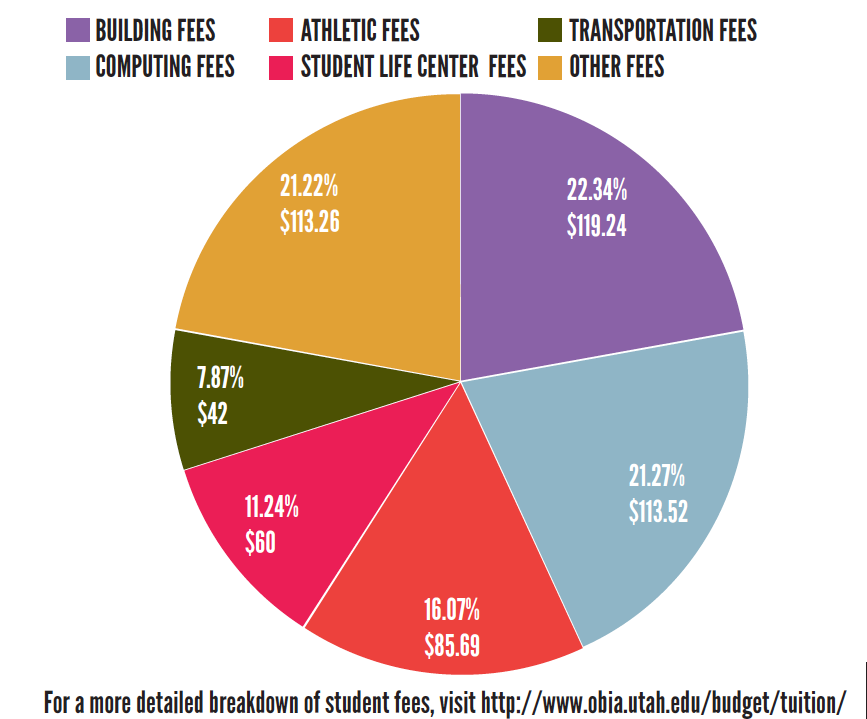Each semester every student pays required fees that go to different areas on campus — about $534 total for those who attend school with an average of 15 credit hours.
While some students may understand where the bulk of their money goes, the smaller divisions are less well-known and more likely to change.
Cathy Anderson, associate vice president of Budget and Planning at the U, said fees are decided on an annual basis by a fee committee made up of student representatives and U administrators, who make recommendations to U President David Pershing. The two changes in fees this year are a $1.68 increase in the athletic fee (now $85.69), which helps fund sporting events and non-revenue sports expenses, and a $1.20 decrease in the collegiate reader fee (now $3.10), which pays for the local and national newspapers available on campus.
According to data from the Office of Budget and Institutional Analysis (OBIA), the three largest fees are the building fee, computing fee and athletic fee. The building fee, $119.24 per semester, covers construction costs with the Union, Rice Eccles Stadium, Housing and Residential Education, and the Huntsman Center. The $113.52 computing fee goes toward technology, such as Umail. The $85.69 athletic fee allows students to have access to sporting events.

Students are also paying to use the Student Life Center. The U requires each student to pay a $60 fee every semester, which will not increase. This fee will be discontinued when the debt on the facility is paid, which will be no more than 20 years. Additionally, students pay a fee for transportation that goes to campus shuttles and UTA TRAX and buses.
Some of the smaller fees, according to data from OBIA, are the study abroad fee and sustainability fee. The $3 study abroad fee helps fund scholarships for students to travel and learn in another country. The $2.50 sustainability fee goes toward projects to create a more environmentally green campus.
A $3 money management fee goes to the Personal Money Management Center, found in the Union. The office offers free one-on-one counseling for anyone who wants financial help. Anne House, coordinator at the center, said students should take advantage of the services because they’re paying for them.
The center can help anyone develop a budget or fill out tax forms. House said it’s “all about starting early.” The group can also help students develop a good credit report, which many employers look at. You can make an appointment online at personal-money-management.utah.edu.
@shellybrooke17

